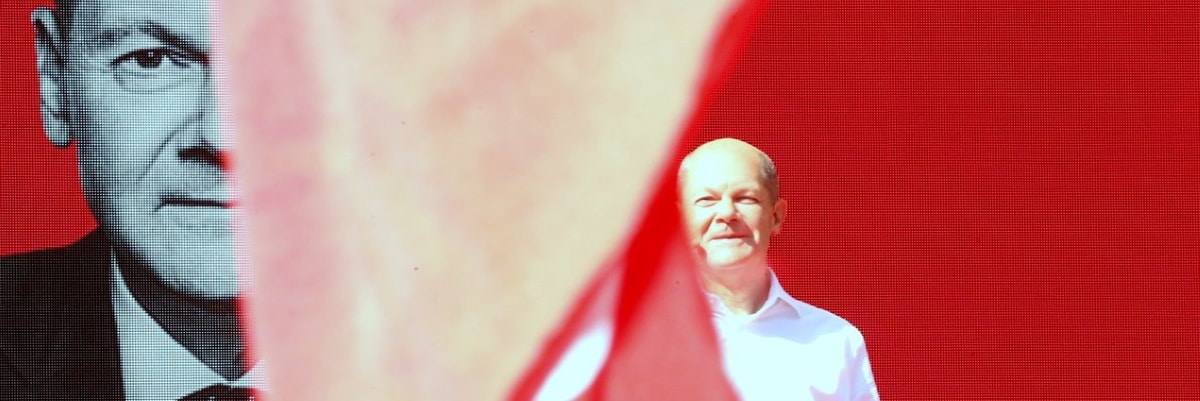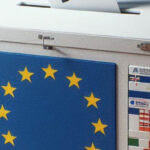Only a year and a half has passed since the beginning of the Scholz government in Germany. A product of the so-called semaphore coalition (from the colors of the SPD, Greens and Liberals), the unprecedented team was called upon to face tough, titanic challenges bordering on the impossible. For the former finance minister of the last Merkel government, the challenge was ambitious: to take the helm of the European Union's most populous state at the height of the covid pandemic and navigate it into calmer waters, ensuring economic growth while trying to manage, at the same time, increasingly out-of-control immigration and a slow but steady impoverishment of its younger citizens. These already heavy challenges have been accompanied by those of the rushed exit from nuclear power, a decades-long battle of the Greens, the ecological transition, and, last but not least, the Russian-Ukrainian war, with its problematic and much-maligned sanctions that are creating no small number of problems for German industry and people. The balance, at least for now, appears disappointing.
Pandemic: government failed
Let's start with Covid: as documented on these pages, the German management of the pandemic, while slightly diluted by a political system that grants great powers to the states, was marked by a strong authoritarian bent, advocated and carried out by Health Minister Karl Lauterbach (SPD) and technicians at the Robert Koch Institut in Berlin. The pandemic, however, ran its course in a manner not dissimilar to other countries that had taken far softer measures instead (this is the case with neighboring Denmark and the adjoining Visegrad countries).
This was compounded by a number of controversies when the issue was over. Great stir was caused by an editorial, which came out for “Der Spiegel” (a newspaper traditionally close to the Social Democratic Party), consisting essentially of a lengthy "mea culpa" for everything that had concerned the pandemic management of the German authorities, particularly with regard to the vaccination campaign and green pass, i.e., the measures authored exclusively by Scholz and his incumbent in the Health Department. During the pandemic, columnist Alexander Neubacher discovered "the dictator within me" - a heavy-handed consideration when expressed in Germany and one that takes on a sternly condemning quality if, as the author of the article does, it is extended to virtually the entire country.
Citing authoritarian countries such as the People's Republic of China, Neubacher asserts that many Germans have been sincerely attracted to political models of that kind, and the much-vaunted German liberal-democratic consciousness, painstakingly built up over eighty years of denazification, would be nothing more than a temporary and posturing veneer. The Kelsenian system of counterweights, in the face of the emergent drift undertaken by the government, proved totally ineffective: the judiciary, in particular, came in glaringly late. The illegality of the liberticidal measures implemented in the pandemic was certified by a number of German courts (such as that of the Brandenburg Land and the Leipzig District Court) only when the same pandemic was already over, at the beginning of the current year. Authoritative constitutionalists, such as Frank Schorkopf of the University of Göttingen, have pointed out that "freedom, in Germany, lasts only as long as there is good weather."
Heavy condemnations, considering they come from one of the country's most influential media outlets - something not yet seen in Italy.
The troubles of the pandemic field marshal, and more
As if that were not enough, the main person responsible for all this, Minister Lauterbach, is in deep trouble after a very recent investigation by the newspaper “Die Welt“ revealed highly serious falsifications of his curriculum vitae, which the minister allegedly accompanied with invented items out of thin air: from a PhD that never existed at Princeton to a study that was never carried out for the Robert Bosch Foundation. There would be more than enough for resignation, but the minister is dragging his feet and has stated that he will defend himself only in the appropriate venues. Appropriate venues in which he will also be held accountable for fraud and theft, such as the one that has just emerged in the state of Berlin, where an investigation by the "Süddeutsche Zeitung" has brought to light a gigantic scandal related to covid tests (the infamous "swabs") contracted out to "friendly" firms, allegedly leading to a financial loss quantified at as much as six billion euros.
Yet another headache to be solved for a chancellor who governs a country rather intransigent toward such episodes.
Winds of war and green imperatives
Coming to the war, which also ties in with the other critical factors outlined earlier, for the Ampelkoalition the situation is even worse.
The government, squeezed as it is between its duties that bind it to NATO and a public opinion that is increasingly unwilling to sanctions and to the country's involvement, albeit indirect, in the conflict in Ukraine, is floundering. Sanctions and the gas blockade, on the sidelines of the ruinous consequences on the European Union's industrial locomotive yet to be calculated, have disrupted the government's agenda. In particular, the Chancellor had to pull the emergency brake on the exit strategy from nuclear power, unleashing the wrath of the Greens: of the last three reactors operating in the Federal Republic, two remained active despite the earlier deadline of Dec. 31, 2022, at midnight of which Germany was to consign its dependence on atomic power to the past.
The same ban on the sale of combustion-engine vehicles for the year 2035 has created quite a few ill feelings in the powerful German industrial world (which has always had the automotive sector as its spearhead), and even the population seems unenthusiastic about the measure, which, although formally coming from Brussels, has the Berlin Grünen as its fathers and main sponsors.
The same military operations in the ongoing conflict are of no small concern to the public, which remains radically opposed to any sending of weapons but which the government is ignoring, achieving the effect of shifting the pacifist, or even just realist, voters toward AfD, now the only party in favor of a diplomatic resolution of the conflict between Moscow and Kiev.
A teetering government
With those opposed to war, sanctions and the green transition migrating to the AfD right and the industrial world increasingly returning to the CDU fold, the government is not sailing in smooth waters. Its approval ratings are already in the minority in the country: if elections were held today, polls say, Friedrich Merz's CDU would easily win them.
Tensions have also arisen with the FDP, the liberal minority shareholders in the government, who also control the powerful economy ministry with their hawk Christian Lindner. The liberals particularly disappoint their voters who are more averse to Brussels and Green ecological totalitarianism, and they too are losing support to the right. This is a worrisome statistic that, if the hemorrhage continues, could push the FDP to pull the plug, perhaps securing temporary outside support, but which would easily expose the country to the risk of new elections in a grim national and international context. Not to mention, among other things, the weakness of that giant elephant in the room called Deutsche Bank, all while the largest transport strike in 30 years is paralyzing the country from the Alps to the Baltic in the name of higher wages.
What Scholz's plans are for the future is unknown, but one assessment can already be drawn: if the goal was to pick up Merkel's legacy and continue in the nearly 20-year wake of her stability, that purpose has failed miserably.
Research fellow at the Machiavelli Center. A philosophy scholar, he has been working for years on the topic of the revaluation of nihilism and the great German Romantic philosophy.









Scrivi un commento